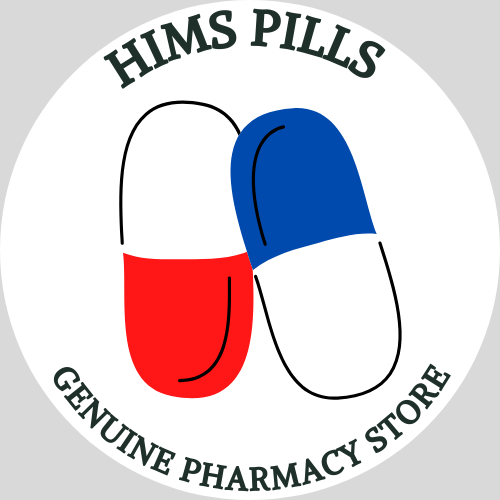Those who suffer from chronic kidney disease (CKD) gradually lose kidney function over time. Millions of individuals throughout the world suffer from this condition, and if it isn't treated, it can have devastating consequences. While medical treatment such as Ketosteril Tablet and lifestyle modifications prescribed by healthcare professionals are essential, many individuals explore natural remedies to complement their CKD management. In this blog post, we will explore various natural approaches to help manage CKD and improve overall kidney health.
Understanding Chronic Kidney Disease (CKD)
Before delving into natural remedies, it's essential to have
a basic understanding of CKD:
Stages of CKD:
CKD is typically categorized into five stages based on the estimated glomerular
filtration rate (eGFR), which measures kidney function. Stages range from mild
(Stage 1) to severe (Stage 5, also known as end-stage renal disease or ESRD).
Causes of CKD:
CKD can result from various underlying conditions, including hypertension,
diabetes, glomerulonephritis, and polycystic kidney disease. It can also be
caused by prolonged exposure to certain medications or toxins.
CKD Symptoms:
Early stages of CKD may be asymptomatic, but as the condition progresses,
symptoms can include fatigue, swelling, increased urination, blood in urine,
and high blood pressure.
Complications:
Left unmanaged, CKD can lead to complications such as cardiovascular disease, anaemia,
bone disease, and the need for dialysis or kidney transplantation.
Natural Remedies for Managing Chronic Kidney Disease
Dietary Modifications
a. Sodium
Restriction: Reducing sodium intake is crucial for managing high blood
pressure and fluid retention, common complications of CKD. Avoiding processed
foods, canned soups, and restaurant meals can help control sodium intake.
b. Phosphorus
Control: High phosphorus levels can harm weakened kidneys. Limiting
phosphorus-rich foods like dairy products, red meat, and carbonated beverages
is essential.
c. Potassium Balance:
Maintaining proper potassium levels is crucial. Some fruits and vegetables,
like bananas and potatoes, are high in potassium and may need to be limited.
d. Protein
Management: Depending on the stage of CKD, protein intake may need to be
adjusted. High-quality, low-protein sources like fish, chicken, and egg whites
can be included.
e. Fluid Restriction:
In advanced CKD, fluid intake may need to be controlled to prevent fluid
overload. To find out how much you should take, go to your doctor.
Herbal Remedies
a. Turmeric:
Curcumin, the active compound in turmeric, has anti-inflammatory properties and
may help reduce kidney inflammation. It's a supplement that can be sprinkled on
meals or taken alone.
b. Dandelion Root:
Dandelion root tea is believed to have diuretic properties that can promote
kidney health by increasing urine production and reducing water retention.
c. Nettle Leaf:
Nettle leaf tea is considered a natural diuretic and may help flush out toxins
from the kidneys.
d. Chanca Piedra:
This herb is traditionally used in Ayurvedic medicine and is believed to
support kidney and liver health. It can be consumed as a tea or in supplement
form.
e. Marshmallow Root:
Marshmallow root tea is known for its soothing properties and may help relieve
kidney discomfort.
Hydration
While fluid restriction may be necessary in advanced CKD,
it's essential to maintain proper hydration. Dehydration can lead to kidney
damage. Consult with a healthcare provider to determine the right balance
between fluid intake and restriction.
Exercise
Regular physical activity can help manage weight, lower
blood pressure, and improve overall cardiovascular health, which is essential
for individuals with CKD. Consult with a healthcare professional to create a
suitable exercise plan based on your condition and fitness level.
Weight Management
Maintaining a healthy weight is crucial for individuals with
CKD, as obesity can exacerbate kidney-related complications. A balanced diet
and regular exercise can aid in weight management.
Stress Reduction
Kidney function is just one aspect of health that may suffer
from chronic stress. Engaging in relaxation techniques such as meditation, deep
breathing exercises, or yoga can help reduce stress levels.
Avoid Smoking and Limit Alcohol
Smoking and excessive alcohol consumption can harm the
kidneys and exacerbate CKD. Quitting smoking and reducing alcohol intake are
essential steps in kidney disease management.
Omega-3 Fatty Acids
Omega-3 fatty acids found in fatty fish (e.g., salmon,
mackerel, and trout) have anti-inflammatory properties and may help reduce
kidney inflammation. A visit to the doctor is in order before starting any new
supplement program.
Homeopathic Remedies
Some individuals explore homeopathic remedies for CKD
management. These remedies are highly individualized and should be discussed
with a qualified homeopath.
Acupuncture
Acupuncture is an alternative therapy that some people find
beneficial for managing CKD-related symptoms, such as pain and nausea. If you
want individualized care, see an acupuncturist.
Herbal Supplements
Certain herbal supplements, such as astragalus and
rehmannia, are traditionally used in Chinese medicine to support kidney health.
Always consult with a healthcare provider before starting any herbal
supplements, as they may interact with medications.
Essential Oils
Aromatherapy with essential oils like lavender,
frankincense, and juniper may promote relaxation and reduce stress. Diffusers
and diluted topical applications of these oils are both possible.
Important Considerations
Consult a Healthcare
Provider: Before starting any natural remedies or making significant
dietary changes, it's crucial to consult with a healthcare provider, especially
if you have CKD or are on medications.
Monitor Progress:
Regular monitoring of kidney function, blood pressure, and overall health is
essential. Your healthcare provider will determine the frequency of tests and
check-ups.
Medication
Interactions: Some natural remedies, supplements, and herbs may interact
with medications, potentially affecting their efficacy or causing side effects.
Discuss all treatments with your healthcare provider to avoid harmful
interactions.
Conclusion
Managing CKD is a complex process that requires a holistic
approach. While natural remedies can play a supportive role in kidney health,
they should be considered as part of a comprehensive plan developed in
consultation with a healthcare provider. Lifestyle, food, herbal therapy, and
stress reduction improve CKD kidney health and quality of life. Visit Medication Place for more.








0 Comments